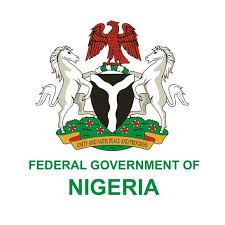Following the walkout by the Organised Labour comprising of the Nigeria Labour Congress and the Trade Union Congress during the last meeting with the Tripartite Committee on Minimum Wage following the proposed N48,000 as minimum wage by the Federal Government, our correspondent learned that the government has now upped it to N54,000.
A highly reliable source within the meeting, which is currently ongoing, disclosed this to our correspondent in Abuja.
“The Federal Government has now proposed the sum of N54,000,” the reliable source said.
Though it is not clear whether Labour would accept this offer, The PUNCH reports that the FG’s proposal is a far cry from the N615,000 proposed by the organized Labour.
The National President of the Nigeria Labour Congress, Joe Ajaero, insisted on N615,000 minimum wage, arguing that the amount was arrived at after an analysis of the current economic situation and the needs of an average Nigerian family of six.
He blamed the government and the OPS for the breakdown in negotiation, saying, “Despite earnest efforts to reach an equitable agreement, the less than reasonable action of the Government and the Organised Private Sector has led to a breakdown in negotiations.”
But speaking on behalf of the OPS, the Director-General of the Nigeria Employers Consultative Association, Mr Adewale-Smatt Oyerinde, described unions’ walkout when negotiation had not started as unfortunate.
The NECA DG admonished the union leaders to reconsider their position and return to the negotiation table in the interest of their members and national development.
However, Ajaero justified their decision to abandon the negotiation, saying, “The government’s proposal of a paltry N48,000 as the minimum wage does not only insult the sensibilities of Nigerian workers but also falls significantly short of meeting our needs and aspirations.
“Though it is worth noting that even the least paid workers in the private sector receive N78,000 as clearly stated by the OPS, highlighting the stark disparity between the proposed minimum wage and prevailing standards further demonstrating the unwillingness of employers and Government to faithfully negotiate a fair national minimum wage for workers in Nigeria.’’
He accused the government of failing to provide data to support its offer, noting that this undermined the credibility of the negotiation.
“Furthermore, the government’s failure to provide any substantiated data to support their offer exacerbates the situation. This lack of transparency and good faith undermines the credibility of the negotiation process and erodes trust between the parties involved.
The NLC president noted that the unions remained committed to fighting for the rights and interests of Nigerian workers.
He also called on the government to reconsider its position and come to the negotiation table with “clear hands that reflect the true value of the contributions made by Nigerian workers to the nation’s development and the objective socioeconomic realities that confront not just Nigerian workers but Nigerians today as a result of the policies of the Federal Government.”











